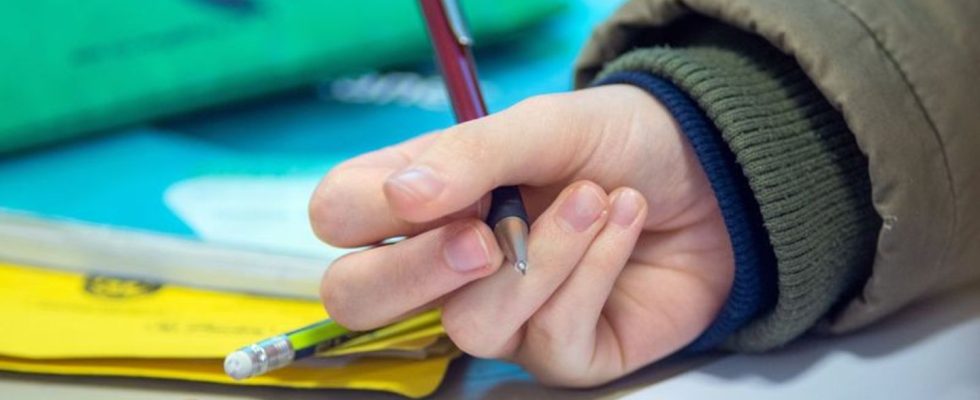Ifo study
Satisfaction with own schools: A country comparison
In all federal states, education policy plays an important role for those surveyed for the next state election. photo
© Klaus-Dietmar Gabbert/dpa
The Ifo Institute asked people in Germany how satisfied they are with the schools in their federal state. The differences are sometimes clear. But there are also general problems.
Baden-Württemberg also scored 30 percent good grades, better than the German average of 27 percent. For statistical reasons, the other federal states were only evaluated as regions by the Ifo. The results are very close with values between 24 and 26 percent good grades.
Shortage of teachers, school buildings, corona consequences
When it came to detailed questions about the problem areas of teacher shortages, inadequately renovated school buildings and learning deficits caused by Corona, Bavaria came out best every time. Even there, 74 percent consider the teacher shortage to be a serious or very serious problem. Nationwide it is 77 percent, and in the Middle East region of Saxony, Saxony-Anhalt and Thuringia it is even 82 percent.
Most respondents in North Rhine-Westphalia (66 percent) consider inadequately renovated school buildings to be at least a serious problem. Nationwide there were 58, in Bavaria only 47 percent. Learning deficits caused by Corona are most often seen as a serious or very serious problem in the Central West region of Hesse, Rhineland-Palatinate and Saarland, at 65 percent. The national average is 61 percent, in Bavaria it was 57 percent.
Satisfaction has fallen significantly since 2014
The country comparison data from the education barometer was published for the first time. The Ifo had already published the nationwide evaluation at the end of August. According to her, overall satisfaction has fallen significantly since 2014. In the representative survey of 5,636 adults between May 17 and June 5, 79 percent nationwide said, among other things, that the quality of school education had deteriorated during the corona pandemic.
In all federal states, education policy also plays an important role for those surveyed in the next state election. On average, it is very or somewhat important for 78 percent. Most common with 84 and 83 percent in the two groups of the eastern federal states, least common in the north-west with 72 and Bavaria with 78 percent.
Education should no longer be a state matter
Across Germany, a majority of 53 percent in the survey were very or somewhat in favor of changing the Basic Law so that school and education policy decisions are no longer made by the federal government and no longer by the states; 29 percent were somewhat or very against it. This was most clearly supported in the northeast with 61 percent approval and 25 percent rejection. Even in Bavaria, at the other end of the scale, approval was still just outweighed by 44 to 41 percent.

